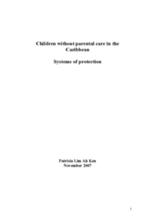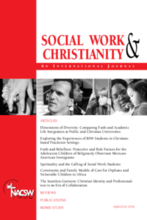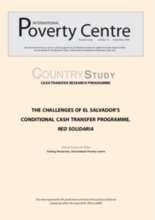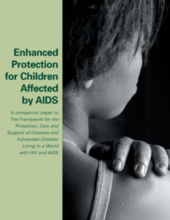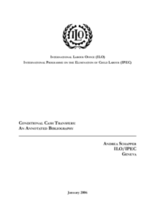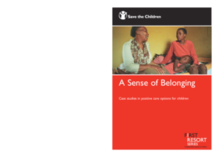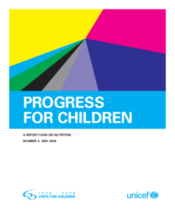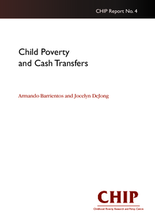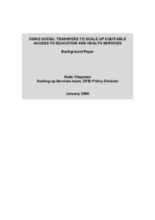Displaying 391 - 400 of 461
A regional assessment of responses to children outside parental care in the Caribbean. Extensive research on successful examples of alternative care. Includes recommendations and lessons learned.
Unites scripture and evidence to help guide North American Christians in responding the needs of children affected by HIV/AIDS. Identifies the shortcomings of institutional care and outlines specific and better alternatives available for supporting children in Africa. Highlights related resources for follow-up.
Provides analysis of the historical background and current structure of El Salvador's conditional cash transfer programme with attention to family integration
Outlines how to strengthen social protection, legal protection, and alternative care for children at country level. Contains specific actions that governments and NGO's can take to decrease the vulnerability of children affected by AIDS and respond to instances of abuse, exploitation and neglect.
This document contains a bibliography global conditional cash transfer documents.
Examines the transition from residential care to family-based, community care models in five European / Eurasian countries.
Save the Children's "First Resort" series focuses on the needs and rights of children who, for a wide variety of reasons, are lacking adequate parental care. This third paper in the First Resort series presents practical examples of the range of options available to policy-makers, practitioners and others with responsibilities for the care and protection of children without adequate parental care.
Evaluates global improvements in nutrition as progress towards achieving the Millenium Development Goals (MDGs). Suggests that the MDGs are attainable only with re-prioritization of efforts to reduce child undernutrition.
This paper examines the effectiveness of targeted cash transfers programs on reducing childhood poverty. It also explored the comparatives effectiveness of different kinds of cash transfers.
This paper focuses on the impact of one form of demand-side policy option - social transfers, particularly cash transfers and vouchers - on access to health and education services by the extreme poor.

